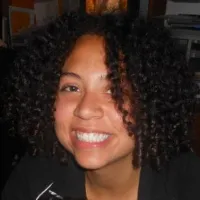New Law, New Curriculum?
On October 5, Governor Jerry Brown made history by signing the End of Life Option Act into law in California. This new piece of legislation allows terminally ill adults to request the prescription of a drug that will help them to end their life (for complete bill text see the California Legislative Information website). With the law set to go into effect next year many students may be wondering how UCSF plans to address the new law in the medical school curriculum.
Though the bill was signed, it may still be too early to make adjustments to school syllabi. According to an article published by the Compton Herald, a group called Seniors Against Suicide (SAS) is already spearheading a repeal effort. SAS must collect a certain number of signatures by January 3 to get a referendum placed on next year’s ballot. If SAS succeeds, the law will be put on hold until the dust settles after the November 2016 election. Despite this, a few programs have already started to give thought to when the new law could be discussed in the curriculum.
Dean Susan Masters, the Associate Dean for Curriculum of the School of Medicine, said she has not heard of specific changes to the medical school curriculum. However, she hypothesized that the End of Life Option Act will likely be discussed in lectures or small groups focused on ethics, rather than as a lecture on its technicalities, such as what drugs are prescribed and how to prescribe them.
For second years, this could be during the Mechanisms, Methods, and Malignancies (M3) or Life Cycle Blocks, since the majority of adults who opt to use the law will be expected to be oncology and gerontology patients. For third years, discussion of the End of Life Option Act could take place during Intersession 2, which is heavily focused on ethical issues in medicine, or during the themed standardized patient exercise regarding end-of-life care options. However, with the rollout of the new Bridges Curriculum next August any decisions to discuss the law at those times would need to be revisited for new classes of medical students.
Dr. DorAnne Donesky, the developer of the Palliative Care Minor for the School of Nursing, stated that, though there will not be any major changes to N203: Palliative and End of Life Care across the Continuum, which is required for students minoring in palliative care. There are multiple opportunities to discuss the new law throughout the course.
Discussion of the law could include a mock ethics committee case, a lecture given by a hospital attorney discussing legal aspects of end-of-life care, a seminar on health policy, or a lecture given by Dr. Bruce (BJ) Miller, a palliative care specialist and Executive Director of the Zen Hospice Project. Speakers from all disciplines give lectures during N203 and students from all schools are encouraged to sign up for the course.
Whatever happens come January 3, course directors are already brainstorming on how to include the End of Life Act in various school curriculums.



